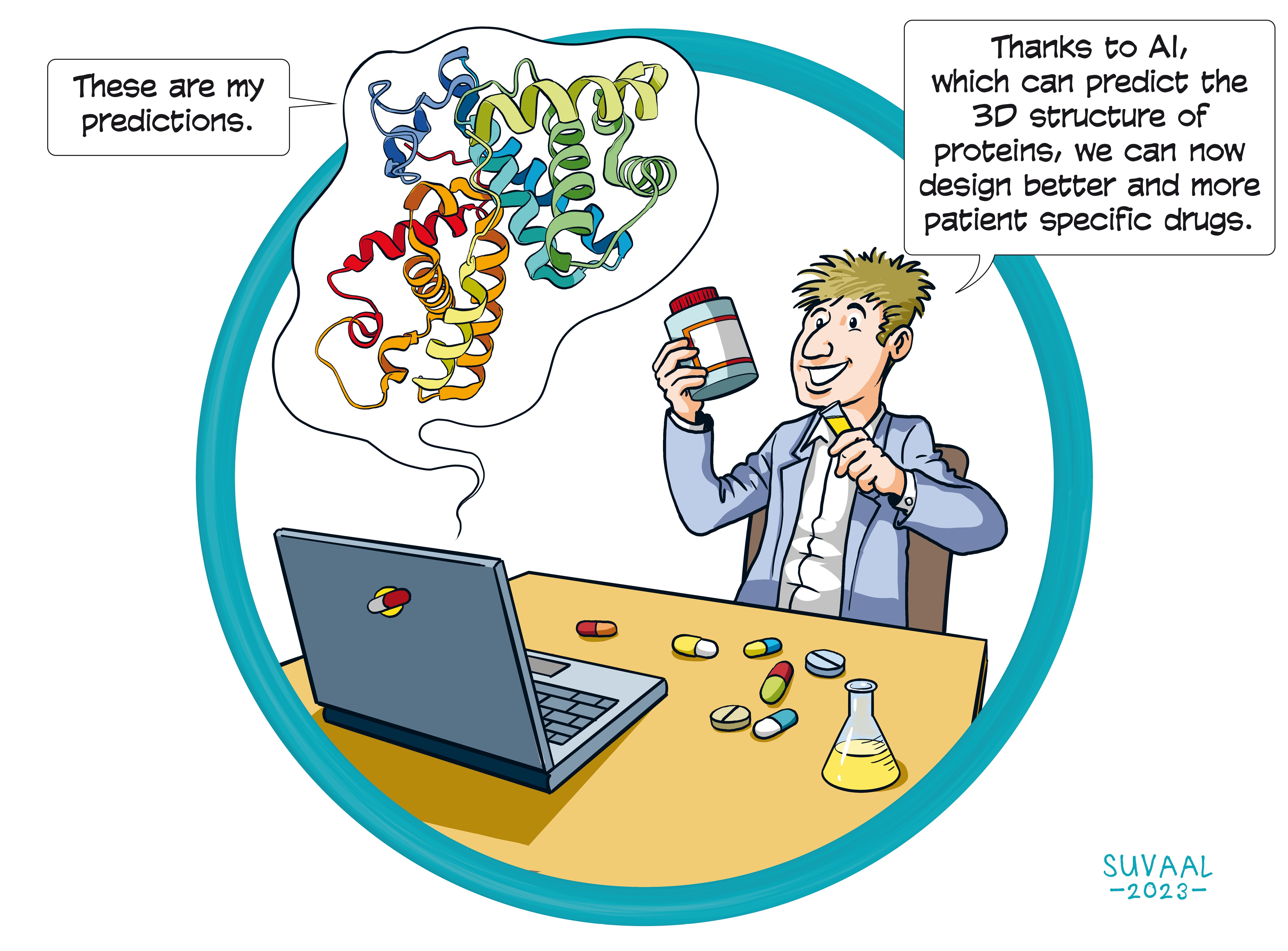AI for Drug development and application
Research Themes: Software Technology & Intellligent Systems

Summary of the project
AI has revolutionized the prediction of protein structures with the introduction of AlphaFold. Deep learning models have learned to predict the 3D structure of proteins from their amino acid sequence. This achievement has a huge impact on the design of drugs. Attention learning helps to learn how small molecules interact with proteins, knowledge that can be used to improve target specificity to binding sites. Similarly, the relation between drugs and patients can be better characterized using AI techniques. For example, DNA profiles of patients can be compared with effectiveness of drugs. In this way, AI techniques can predict for which patient group a medicine will work better than the others, an important step to achieve personalized medicine.
What's next?
For the development of medicines, the research is still on the drawing board. Methods need to be refined to further detail before the use of AI can be implemented and validated and more effective drugs can be developed. To realize personalized medicines, we need to optimize the translation between cell lines and what we measure in a tumor, to test suitable medicines much faster at the same time. It is also important to check the efficiency of medicines in randomized control trails and looking in retrospect which type of patients received which medicine and how did that work?
With or Into AI?
Both
Dr. Marcel Reinders
Dr. Boudewijn Lelieveldt (TUD/LUMC)
Dr. Lodewyk Wessels (NKI/TUD)
Faculties involved
- EEMCS